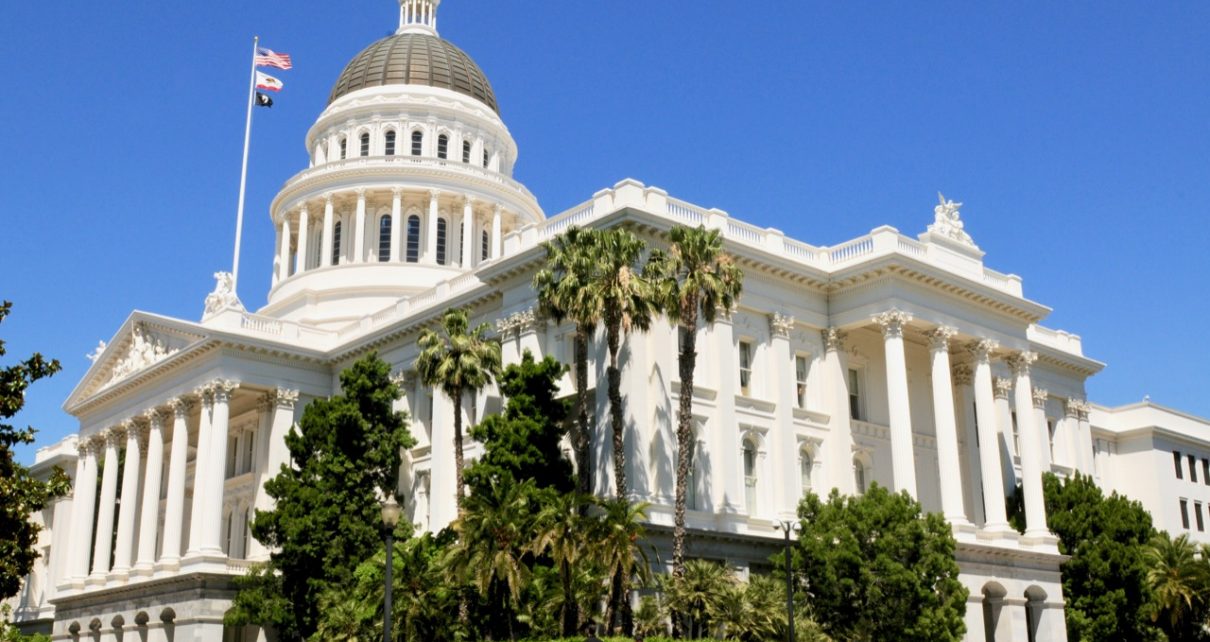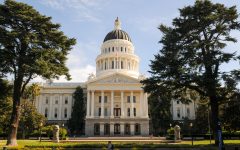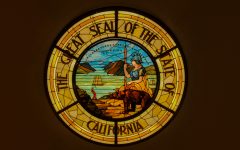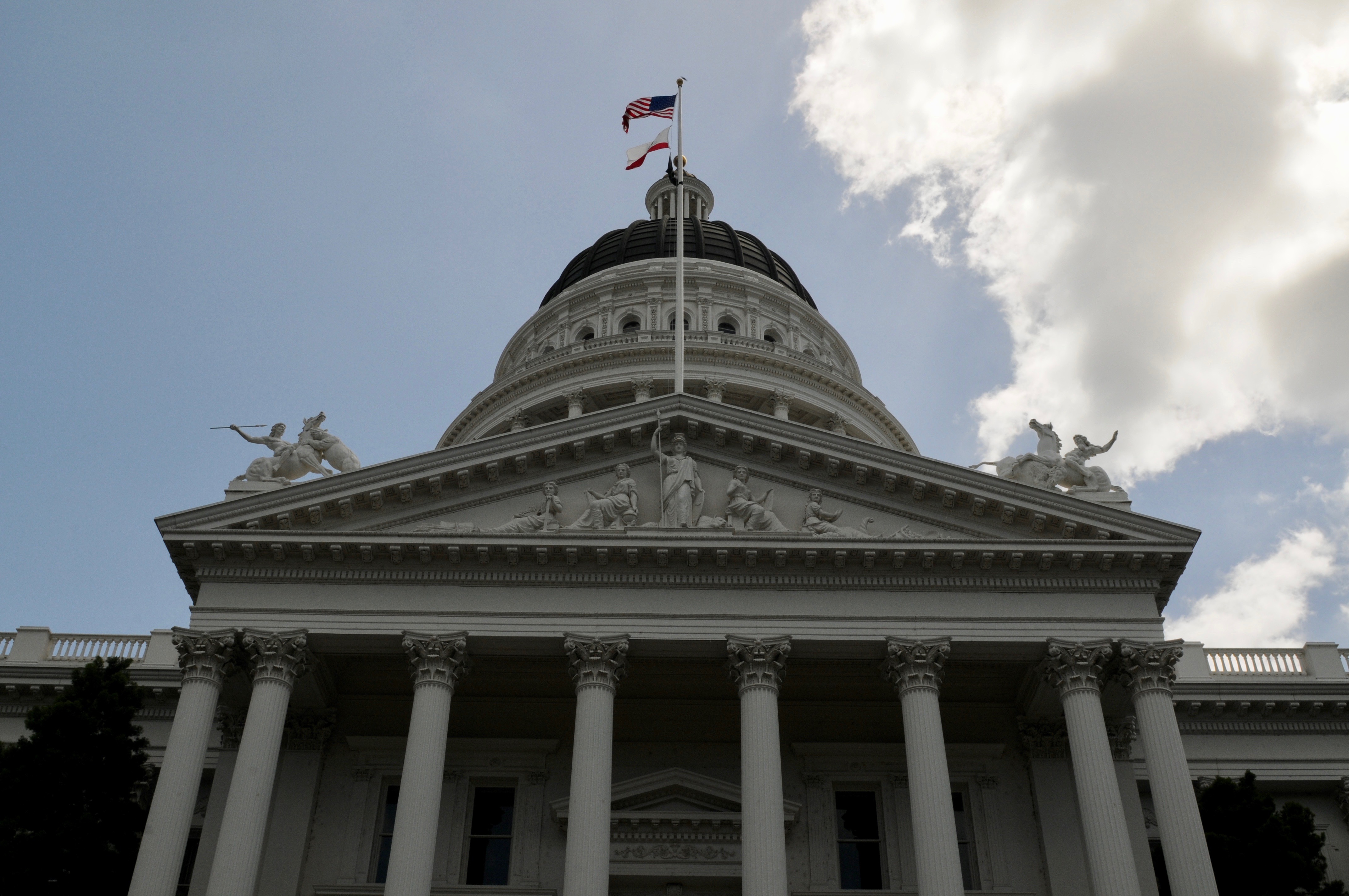
California State Capitol. (Photo: Kevin Sanders for California Globe)
Enforcement of the California Political Reform Act
Any person who knowingly or willfully violates any provision of this title is guilty of a misdemeanor.
By Chris Micheli, January 20, 2022 3:01 pm
California’s Political Reform Act contains a number of enforcement mechanisms. They are contained in Government Code Title 9, Chapter 11, in Sections 91000 – 91014. Section 91000 specifies that any person who knowingly or willfully violates any provision of this title (i.e., the Political Reform Act) is guilty of a misdemeanor.
A fine of up to the greater of $10,000 or three times the amount the person failed to report properly or unlawfully contributed, expended, gave or received may be imposed upon conviction for each violation. In addition, prosecution for violation of this title must be commenced within four years after the date on which the violation occurred.
Section 91000.5 specifies that an administrative action brought alleging a violation of any of the provisions of this title cannot be commenced more than five years after the date on which the violation occurred.
Section 91001 makes the Attorney General responsible for enforcing the criminal provisions of this title with respect to state agencies, lobbyists and state elections. The district attorney of any county in which a violation occurs has concurrent powers and responsibilities with the Attorney General.
In addition, the civil prosecutor, which is the FPPC, is primarily responsible for enforcement of the civil penalties and remedies of this title. The Attorney General is the civil prosecutor with respect to the FPPC. The district attorneys are the civil prosecutors with respect to any other agency. The civil prosecutor may bring any civil action under this title which could be brought by a voter or resident of the jurisdiction.
Upon written authorization from a district attorney, the FPPC may bring any civil action under this title which could be brought by a voter or resident of the jurisdiction. Whether or not a violation is inadvertent, negligent or deliberate, and the presence or absence of good faith must be considered in applying the remedies and sanctions of this title.
Section 91001.5 states that, in any case in which a district attorney could act as the civil or criminal prosecutor under the provisions of this title, the elected city attorney of any charter city may act as the civil or criminal prosecutor with respect to any violations of this title occurring within the city.
Section 91002 provides that no person convicted of a misdemeanor under this title can be a candidate for any elective office or act as a lobbyist for a period of four years following the date of the conviction unless the court at the time of sentencing specifically determines that this provision is not applicable. Any person violating this section is guilty of a felony.
Section 91003 provides that any person residing in the jurisdiction may sue for injunctive relief to enjoin violations or to compel compliance with the provisions of this title. The court may in its discretion require any plaintiff other than the FPPC to file a complaint with the commission prior to seeking injunctive relief. The court may award to a plaintiff or defendant who prevails that party’s costs of litigation, including reasonable attorney’s fees.
Section 91003.5 specifies that any person who violates a specified provision is subject to discipline by that person’s agency, including dismissal, consistent with any applicable civil service or other personnel laws, regulations, and procedures.
Section 91004 specifies that any person who intentionally or negligently violates any of the reporting requirements of this title is liable in a civil action brought by the civil prosecutor or by a person residing within the jurisdiction for an amount not more than the amount or value not properly reported.
Section 91005 provides that any person who makes or receives a contribution, gift, or expenditure in violation of law is liable in a civil action brought by the civil prosecutor or by a person residing within the jurisdiction for an amount up to $1,000 or three times the amount of the unlawful contribution, gift, or expenditure, whichever amount is greater.
Any designated employee or public official, except an elected state officer, who realizes an economic benefit as a result of a violation of law or of a disqualification provision of a conflict of interest code is liable in a civil action brought by the civil prosecutor or by a person residing within the jurisdiction for an amount up to three times the value of the benefit.
Section 91005.5 states that any person who violates any provision of this title for which no specific civil penalty is provided, is liable in a civil action brought by the FPPC or the district attorney for an amount up to $5,000 per violation. No civil action alleging a violation of this title may be filed against a person pursuant to this section if the criminal prosecutor is maintaining a criminal action against that person.
Section 91006 states that, if two or more persons are responsible for any violation, they are jointly and severally liable. Section 91007 specifies that any person, before filing a civil action, must first file with the civil prosecutor a written request for the civil prosecutor to commence the action.
Section 91008 provides that not more than one judgment on the merits with respect to any violation may be obtained. Section 91008.5 provides that no civil action may be filed with regard to any person for any violations of this title after the FPPC has issued an order against that person for the same violation.
Section 91009 provides that, in determining the amount of liability, the court may take into account the seriousness of the violation and the degree of culpability of the defendant. If a judgment is entered against the defendant or defendants in an action, the plaintiff receives fifty percent of the amount recovered. The remaining fifty percent is deposited in the General Fund of the state. In an action brought by the civil prosecutor, the entire amount recovered is paid to the general fund or treasury of the jurisdiction.
Section 91010 states that no request to the civil prosecutor can be made or filed in connection with a report or statement required until the time when an audit and investigation could be begun. Section 91011 provides that no civil action alleging a violation in connection with a report or statement required can be filed more than four years after an audit could begin, or more than one year after the Franchise Tax Board forwards its report to the FPPC, of any audit conducted of the alleged violator, whichever period is less.
Section 91012 provides that the court may award to a plaintiff or defendant other than an agency, who prevails in any action authorized by this title, that party’s costs of litigation, including reasonable attorney’s fees. On motion of any party, a court must require a private plaintiff to post a bond in a reasonable amount at any stage of the litigation to guarantee payment of costs.
Section 91013 provides that, if any person files an original statement or report after any deadline imposed by this act, the person must, in addition to any other penalties or remedies established by this act, be liable in the amount of $10 per day after the deadline until the statement or report is filed, to the officer with whom the statement or report is required to be filed.
Section 91013.5 specifies that the FPPC or the filing officer may bring a civil action and obtain a judgment in superior court for the purpose of collecting any unpaid monetary penalties, fees, or civil penalties imposed pursuant to this title.
Section 91013.7 provides that, if the time for judicial review of a final FPPC order or decision has lapsed, or if all means of judicial review of the order or decision have been exhausted, the FPPC may apply to the clerk of the court for a judgment to collect the penalties imposed by the order or decision, or the order as modified in accordance with a decision on judicial review.
Section 91014 states that nothing in this chapter exempts any person from applicable provisions of any other laws of this state.
- Should Interpretive Guidance Be Included in California Legislation? - April 28, 2024
- Legislative Intent Does Not Equate to a Mandate - April 27, 2024
- Frequently Asked Questions about State Agency Ethics Training - April 26, 2024





One thought on “Enforcement of the California Political Reform Act”